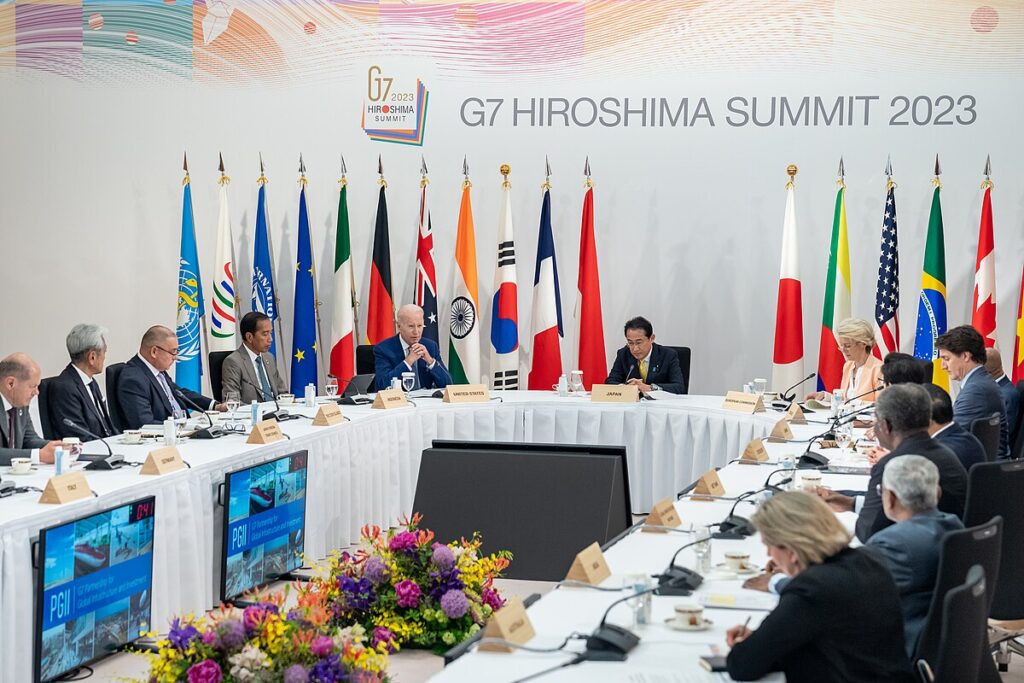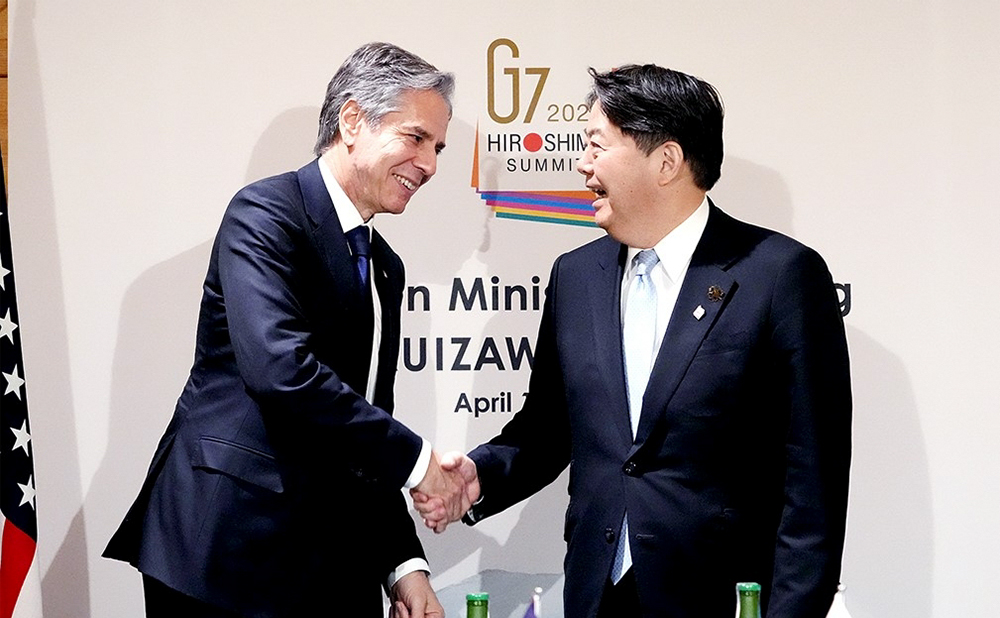The 49th G7 summit was of special significance for multiple reasons. The theme for this year’s meet
was nuclear disarmament and non-proliferation, with the G7 leaders coming forward and
reaffirming their commitment to a “world without nuclear weapons”.
The reason however, that made headlines was when the location of the three-day summit was announced, it was the site of the world’s first ever nuclear attack – Hiroshima. This alone is a strong enough reminder of the consequences of a nuclear war, considering the on-going conflict between Russia and Ukraine, which has now entered its 508th day (1 year and 3 months, since February 2022).

The summit was attended by Fumio Kishida – Prime Minister of Japan; Giorgia Meloni – Prime Minister of Italy; Justin Trudeau – Prime Minister of Canada; Rishi Sunak – Prime Minister of the United Kingdom; Joseph R. Biden Jr – President of the United States; Emmanuel Macron – President of France; Olaf Scholz – Chancellor of Germany; Charles Michel – President of the European Council; and Ursula von der Leyen – President of the European Commission.
On the closing day of the summit, a surprise but much needed presence was of Volodymyr Zelensky – President of Ukraine. Zelensky’s attendance was welcomed with open arms and sent out a clear message of the willingness of the G7 members to support countries that are either under attack or are facing a constant threat of one, like Ukraine. This is truly an important development considering that the US, the NATO, or even Japan for the matter, do not have any formal alliance with the eastern European nation.
While there were several topics and issues to be discussed ranging from economical to political, but
the ones which took center stage were: the Russian invasion of Ukraine and the growing Chinese
assertion in the disputed South China Sea, over the self-ruled Taiwan, and Beijing’s recently
uncovered domestic interference activities in Europe and Asia.
Stance Against the Conflict between Russia and Ukraine
The leaders vowed to stand united against ‘illegal, unjustifiable, and unprovoked’ war of aggression against Ukraine. In a show of strength for the eastern European nation, in a joint statement G7 nations maintained a firm stance and pledged to impose more sanctions on Russia. The statement reads that the countries are “imposing further sanctions and measures to increase the costs to Russia and to those who are supporting its war effort”.
“We are also building on the success of our efforts to ensure that Russia is no longer able to weaponize the availability of energy against us and against the world,” the statement added. This decision was taken not only in light of its actions in Ukraine but also in view of Moscow’s destabilizing activities in other countries which range from cyberattacks, human rights issues, and disinformation campaigns.
As the summit neared its conclusion, Japanese Prime Minister Kishida, the host of the G7, laid emphasis that the security of Europe and the Indo-Pacific is in fact indivisible, and also mentioned with much apprehension that if no action is taken now then the ‘Ukraine today could be East Asia tomorrow’.
Economic Take on China and Its Intensifying Militarization Activities
The nations mentioned ‘de-risking’ relations with Beijing. The word in itself, in pure economical sense, implies the moving away of businesses from regions that are considered risky in terms returns that could be generated. However, referring to China, de-risking can also be perceived as a step taken to reduce reliance on Beijing, mostly for the supply of materials or as a market for finished goods, so as to bring down potential risks to trade and disruption of supply chains.

Apart from this economical take, Beijing also received a strong pushback over its stance on Russia, on its intensions towards Taiwan. The G7 leaders also released a communique, warning Beijing against its intensifying ‘militarization activities’ in the Indo-Pacific region. This is believed to be the result of discussions that were held to highlight the key concerns and the future consequences of increased militarization in the East and South China Seas, as well as human rights concerns in Xinjiang and Tibet.
Another contributing factor towards the release of the above-mentioned communique, can be the issue of domestic interference of several European and Indo- Pacific nations. This is in view of the establishment of Chinese ‘overseas police stations.’ After the Summit, UK Prime Minister Rishi Sunak also called China as ‘the biggest challenge to global security and prosperity of our age.’
This pushback was not taken very lightly by Beijing, as it immediately hurled accusations on the G7 nations for coming together to ‘smear and attack’ China. Referring to the summit as an ‘anti-China’ one, Beijing summoned Japan’s envoy and berated UK the very next day in a fiery response to the statements made in Hiroshima.
In conclusion of the G7 Summit, while it was rather clear that the nations are united towards countering several issues whether economical or geopolitical, what remains to be seen is whether their unity will result in striking a balance between seeking cooperation in the aforementioned issues and push back against illegal assertive posture or will it simply be reduced to a formal discussion with no plan of action in sight for the coming term.



